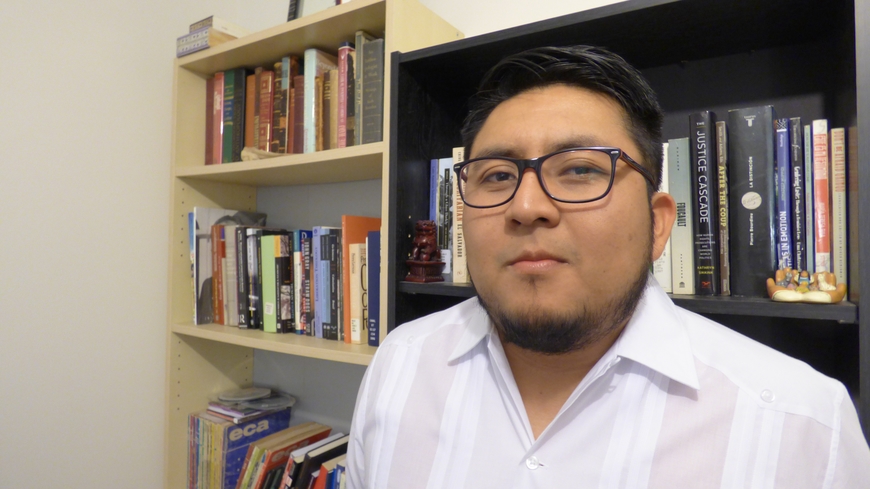Unanimous Truths: RA Heider Tun Tun and the IDP Situation in El Salvador
Heider Tun Tun, a Ph.D. candidate in the Department of History with a minor in Human Rights, is a member of Professor Patrick McNamara’s team researching internally displaced peoples (IDPs) in El Salvador. With the help of a Human Rights Initiative grant, Heider traveled to Guatemala to help gather more information and further the investigation into the situation of Salvadoran IDPs. Professor McNamara of the Department of History, and his team of researchers, Heider and Paula Cuellar Cuellar, are researching this pressing issue which lies at the intersection of history and human rights.
Prof. McNamara’s research project, From IDPs to Refugees: Forced Migration in El Salvador, investigates the forced migration continuum in El Salvador today. Both the Office of the United Nations High Commissioner for Human Rights (OHCHR) and the government of El Salvador are just now starting to highlight the issue of IDPs that has been a humanitarian problem for hundreds of years. While the research project is primarily focused on the situation in El Salvador, its neighbor Guatemala also plays an important role as it has the largest census data about IDPs from El Salvador. Heider traveled to Guatemala to start a network of all the actors intervening in the IDP issue.
To do so, first Heider had to investigate who the key agents are in this human rights issue. He met with NGOs, government agents, and most interestingly, Catholic Churches. Pastorals within the Catholic Church are organized in different offices such as Promotion of Human Rights and the Pastoral of Human Mobility. Although initially overlooked, Heider discovered that the Church serves as an important actor in IDP research and mitigation.
The most challenging aspect of the project was the lack of consensus between actors. Each entity presented different numbers and data sets on IDPs. There is no sharing of information between these entities, making it difficult to know the truth on IDPs as discrepancies are abundant. As a result, the project changed its goal to create a foundation for unanimous information on IDPs in order to better connect scholars and organizations from the US and Central America.
Another difficulty Heider encountered is the lack of a concrete, unanimous definition of who constitutes an IDP. The many conflicting definitions make collaborative research on the issue difficult. Interpretations of “IDP” vary to include those displaced by one, some, or all of the following factors: poverty, natural disaster, war, political turmoil, and/or economic turmoil.
The project’s interdisciplinary approach with both history and human rights makes it an important topic for the Department of History’s faculty and students to undertake. Heider is committed to researching and understanding the various intellectual debates surrounding IDPs, e.g., how to label particular violence or how to term the act of killing someone. Is it genocide or murder? Or how do you classify a person moving across borders? And what does it mean when thousands of people move?
The patterns and implications of social mobility are what drive Heider to explore the IDP situation in El Salvador. It has been an enlightening and informative experience for Heider to contribute to Professor McNamara‘s mission to reveal the critical situation of IDPs in El Salvador.



